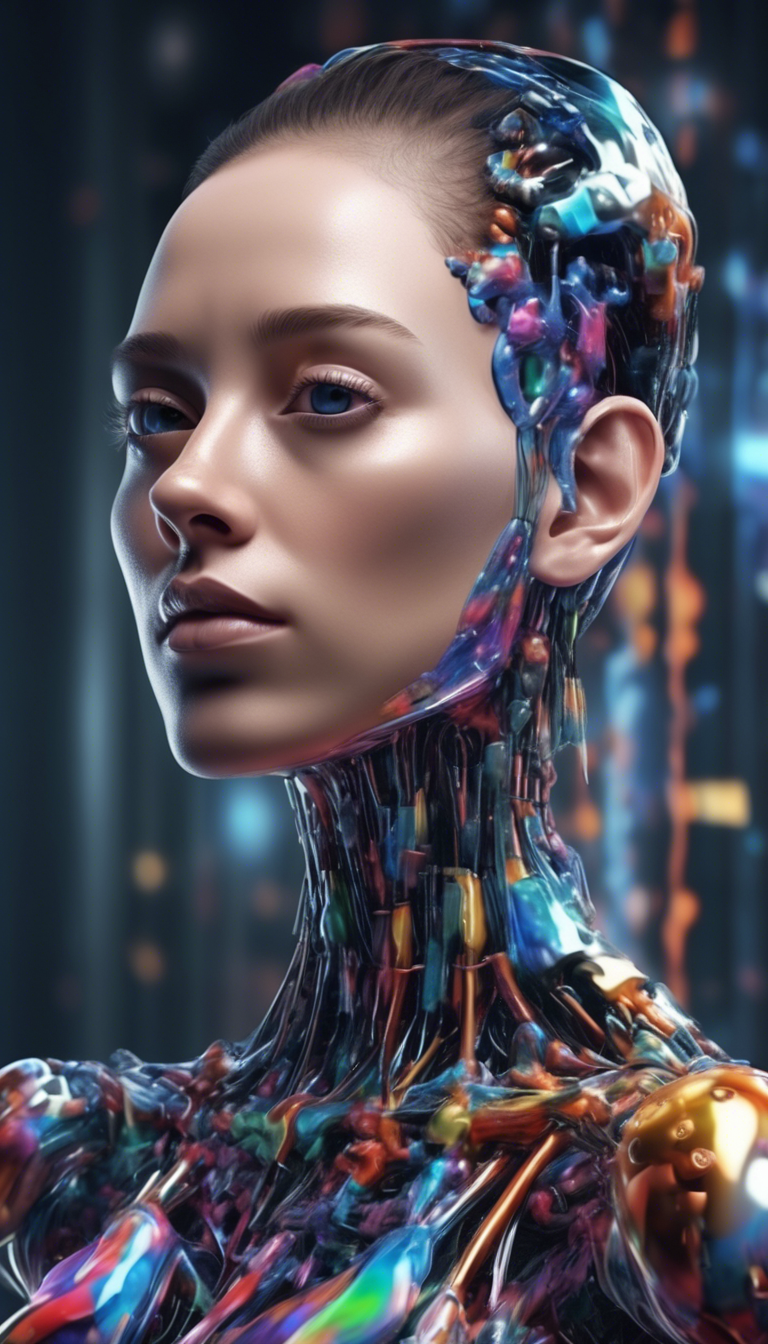The Impact of Content Creation AI on Modern Marketing Strategies
The rise of Artificial Intelligence in various sectors is transforming how businesses approach their marketing strategies. Among the most significant advancements is the integration of AI in content creation. This innovative technology is enabling marketers to enhance their strategies in unprecedented ways, generating benefits for both clients and brands.
One of the most striking advantages of using AI in content creation is its ability to produce high-quality content at an incredible speed. Traditional methods of content creation can be time-consuming and resource-intensive. However, AI tools can analyze data and generate engaging articles, blog posts, and social media content in a fraction of the time. This allows marketers to focus on refining their strategies and optimizing campaigns rather than getting bogged down in writing tasks.
Moreover, AI-driven platforms provide insights that enhance content personalization. By analyzing user behavior, preferences, and demographics, these tools help marketers tailor content to meet specific audience needs. For example, an AI tool might determine that younger audiences prefer interactive content, while older demographics respond better to traditional articles. Harnessing such insights allows businesses to craft targeted campaigns that yield higher engagement rates.
Another impactful feature of AI in content creation is its ability to maintain a consistent brand voice. Through machine learning, AI systems can be trained to mimic the tone and style of a brand’s existing content. This ensures that whether it’s social media posts, promotional emails, or website content, the messaging aligns perfectly with the brand’s identity. As a result, brands can enhance recognition and loyalty among their audience.
In addition to consistency, AI also enhances SEO strategies. AI tools can analyze ranking algorithms and suggest improvements based on the latest SEO trends. By recommending specific keywords, optimal content length, and even ideal posting times, these tools help marketers ensure their content ranks higher in search engine results. When your content is easily discoverable online, you attract more traffic, which ultimately leads to more conversions.
Implementing AI for content creation does not mean sacrificing creativity. Instead, it complements human creativity by offering a preliminary structure that writers can refine. For instance, AI can generate initial drafts based on specific topics, leaving writers to enhance flavor, add anecdotes, or incorporate personal insights. This partnership between AI and human input lends itself to more creative freedom, where the writer can focus on the emotional and storytelling aspects of content.
Furthermore, the efficiency of AI tools extends to analyzing performance metrics as well. After content is published, marketers need to evaluate its impact. Using AI analytics, they can quickly glean insights concerning engagement rates, click-through rates, and audience behavior. This data is essential for tweaking ongoing strategies and understanding what resonates with consumers.
- Speed: AI-generated content is produced rapidly, saving time for marketers.
- Personalization: Insights from AI allow for tailored messaging that meets audience expectations.
- Consistency: The ability of AI to maintain brand voice contributes to enhanced recognition.
- SEO Optimization: AI helps identify key trends and optimize content for better search rankings.
- Performance Analysis: AI tools analyze metrics to provide insights that help refine future content.
However, the implementation of AI in content creation does come with certain challenges. For instance, businesses need to find a balance in the reliance on AI versus human skill. Overdependence on machines can lead to generic and uninspired content that lacks the human touch. Therefore, marketers should adopt a hybrid approach, where AI acts as a tool to support, rather than replace, creative processes.
The impact of content creation AI on modern marketing strategies is profound. By adopting these advanced technologies, companies can develop more efficient, personalized, and engaging content that resonates with their target audiences. As the digital landscape evolves, leveraging AI in content creation will play a crucial role in helping brands stand out in an oversaturated market.
Balancing Creativity and Automation: Best Practices for Using AI in Content Creation
In today’s fast-paced digital landscape, marketers and content creators increasingly employ AI tools to enhance their workflows and increase productivity. However, striking the right balance between creativity and automation is essential to maintain engagement and originality. Finding ways to integrate AI technology without overshadowing human creativity can elevate content quality and deliver a distinct voice that resonates with audiences.
Understanding the Role of AI in Content Creation
AI’s real power lies in streamlining repetitive tasks that often bog down writers. By automating various processes, such as keyword research, data analysis, and content optimization, AI frees up more time for creators to focus on crafting compelling narratives. Here are several ways AI aids in content creation:
- Content Ideation: AI tools can analyze trends and suggest fresh topics, which helps creators brainstorm content ideas based on current market demands.
- SEO Optimization: Automated tools analyze search trends to identify keywords that can enhance visibility, allowing writers to produce content that ranks well.
- Performance Analytics: AI can track how content performs, providing insights that can shape future strategies.
Balancing Automation and Creativity
While AI offers numerous benefits, relying solely on technology can dilute creativity. To maximize the strengths of both realms, creators should consider the following best practices:
- Define Clear Objectives: Before employing AI tools, set clear goals for what the content should achieve. This could range from educating audiences to driving sales.
- Use AI as a Collaborator, Not a Replacement: Treat AI tools as partners that enhance your writing process, enabling you to craft content that resonates deeply with your audience.
- Incorporate Personal Touch: AI can generate ideas and even draft portions of content, but it’s crucial to add your unique voice and perspective. Authenticity is vital in creating a connection with readers.
- Regularly Review AI Outputs: Always double-check and refine AI-generated content. A human touch can transform a one-dimensional piece into a compelling story.
Enhancing Creativity Through AI
AI can also bolster creativity when used wisely. Here’s how:
- Expanding Horizons: By analyzing vast datasets, AI can discover insights and connections that may not be apparent to human writers, sparking innovative ideas.
- Overcoming Writer’s Block: Use AI to generate prompts or outlines when you feel stuck. This can stimulate fresh ideas and new angles on existing topics.
- Testing and Iterating: AI can facilitate A/B testing on different versions of content, helping creators understand what narrative styles or approaches resonate best with their audience.
Ethical Considerations and Challenges
Integrating AI into content creation comes with ethical dilemmas and challenges. Consider the following:
- Content Ownership: With AI generating content, questions about who owns the output emerge. Establish clear guidelines on content use and attribution.
- Potential for Misinformation: AI can produce misleading or incorrect information. Thus, it’s essential to maintain accuracy by fact-checking and validating all outputs.
- Budget Constraints: While many AI tools offer beneficial features, the cost can be a limiting factor for smaller businesses. Prioritize tools that provide the best return on investment.
Ultimately, the key to successfully leveraging AI in content creation lies in maintaining a thoughtful balance. By blending the efficiency of automation with the vibrancy of human creativity, writers can produce high-quality content that engages and informs. Embrace AI not just as a tool for efficiency, but as a means to enhance your creative process while ensuring the integrity and authenticity of your communication.
As AI continues to evolve, it will undoubtedly become a more integral part of the content creation landscape. Adopting best practices now will help you stay at the forefront of this transformative trend. Explore new AI tools regularly, adapt your strategies, and remember—creativity is at the heart of engaging content creation, with automation serving as the wind beneath its wings.
Conclusion
As the digital landscape continues to evolve, the integration of content creation AI into modern marketing strategies presents both opportunities and challenges. The ability of AI to generate vast amounts of content quickly has reshaped how businesses approach their marketing efforts. However, while technology can enhance content production, it cannot and should not replace the creativity and human touch that are essential for truly engaging content.
Leveraging content creation AI effectively requires a careful balance between automation and creativity. Businesses can streamline their processes significantly, utilizing AI tools to produce first drafts, analyze data trends, and optimize content for search engines. This allows content creators to focus on strategic planning, audience engagement, and the crafting of narratives that resonate. By harnessing AI for repetitive or analytical tasks, marketers can spend more time on creative endeavors, ensuring that their output remains unique and compelling. This synergy between human creativity and AI efficiency is what drives successful modern marketing campaigns.
Best practices for incorporating AI into your content strategy involve understanding the tools available and knowing when to use them. It’s crucial to maintain an authentic voice that reflects the brand’s values and connects with the audience. One effective approach is to utilize AI for content ideation. Tools can analyze current trends, keywords, and what’s trending within a specific niche, providing valuable insights that inform content strategy. Once ideas are generated, human creators can take the baton, infusing the content with personal insights, stories, and emotional intelligence that resonate with audiences.
Moreover, an essential best practice involves regular review and adaptation. AI-generated content does not always hit the mark; it may require human intervention to polish, fine-tune, and align with brand messaging. Regularly assessing the effectiveness of AI-generated content can help identify what’s working and what needs adjusting. This feedback loop can improve future AI performance and ensure that the content remains relevant and engaging.
Content creation AI also plays a significant role in personalizing marketing efforts. By analyzing user data, AI can help tailor content to meet specific audience needs and preferences. This targeted approach drives higher engagement rates and fosters a deeper connection between brands and consumers. However, this level of personalization must be handled with care. Striking the right balance between personalization and privacy is vital for maintaining user trust. Transparent communication about how data is collected and utilized helps build a positive relationship with consumers, enhancing brand loyalty.
As we move forward, the role of content creation AI will likely become even more prominent. Innovations in AI technology are positioning it as an indispensable tool for marketers seeking efficiency and effectiveness in their campaigns. Still, the most successful strategies will be those that recognize AI as an ally rather than a replacement for human creativity. Emphasis should always be placed on producing high-quality, original content that genuinely brings value to readers.
Fostering a culture of collaboration between AI technologies and content creators can lead to a richer, more dynamic content ecosystem. Encouraging creative brainstorming sessions that utilize AI insights can help generate new ideas while ensuring that the final product embodies the passion, values, and visions of the brand.
Ultimately, the future of content creation AI in marketing lies not just in automation, but in smart collaboration. By embracing this technology while prioritizing the irreplaceable elements of human creativity and storytelling, businesses can build more meaningful connections with their audience.
The goal of effective content remains the same: to inform, engage, and inspire. As marketers navigate the delicate interplay between creativity and automation, those that adopt a people-first approach to their content strategy will thrive. By focusing on delivering value and building relationships, brands can ensure that both their use of AI and their human insights serve a common purpose—creating content that resonates in an increasingly competitive landscape. Striking this balance is key in not just keeping up with modern trends, but in setting the stage for continued success in the ever-evolving world of digital marketing.


